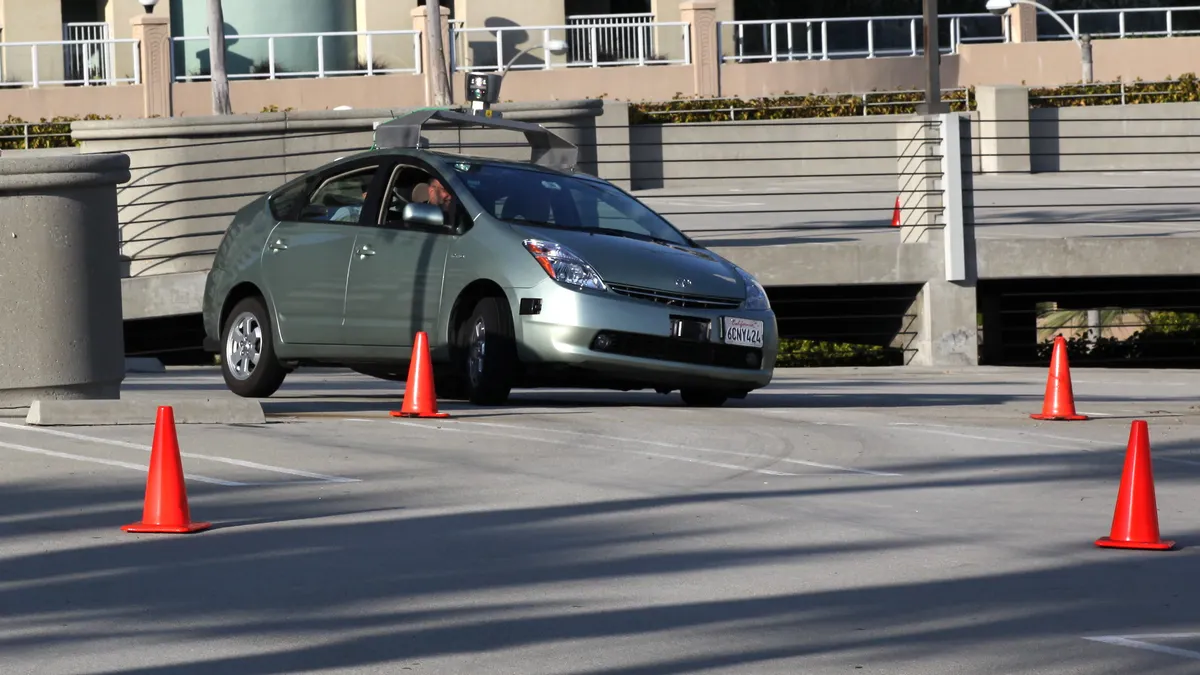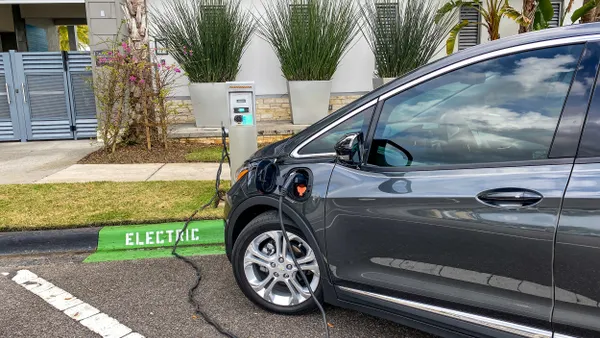Dive Brief:
- Global design firm Stantec has introduced Stantec GenerationAV, a dedicated consulting offering to guide industry and public sector clients in procuring and deploying autonomous vehicle (AV) and driving technologies.
- GenerationAV will center on data-driven efforts to offer clients centralized resources and expert connections as they address regulatory requirements, select technology suppliers and build AV roadmaps. The service will also offer training and education programs to give clients critical learning opportunities for better operational management.
- Stantec will lean heavily on partnerships to pursue its consulting services. The firm has partnered with dRISK, Icarus Ops and POCO Labs to provide expertise in the areas of operations, safety, engineering, planning and policy, and will "continue to seek best in class partners" as GenerationAV evolves, Stantec said in a press release.
Dive Insight:
The launch of GenerationAV follows a recent Stantec-sponsored survey of leaders across 100 global cities, which found the complexity of smart city technology procurement is a major obstacle for 44% of respondents. The survey also highlighted a lack of experience among leaders hoping to launch AV programs, with only 2% of public and private agencies in North America saying they have such experience.
This consulting offering is the result of more than a decade of relationship-building with startups, cities, transit agencies, insurance companies, original equipment manufacturers (OEMs) and others in the AV sector, said GenerationAV Director Corey Clothier, who began working with AVs in 2009 while at the U.S. Department of Defense.
"We knew what the right approach was ... We recruited a team of folks that are really in a world class of experts in their space," Clothier said, pointing to the former executives, military veterans and scientists who will participate in GenerationAV's consultation offerings.
GenerationAV will help to address common hurdles in AV deployment, including safety concerns and regulatory obstacles, for clients globally. Its proprietary supplier database intends to shorten clients' deployment cycle, while its public Learning Center — slated to launch in mid-January — will offer 18 courses that cover AV history, policy and technology best practices.
"We're looking at autonomous vehicles kind of holistically. It's not just about people moving, it's about the entire industry moving forward. And something we were working on at the military is our philosophy that every project could inform every other project," Clothier said.
GenerationAV will also advocate for more equitable access to autonomous systems, beyond vehicle compliance with the Americans with Disabilities Act (ADA). This can be done through the deployment of more low-speed cargo delivery vehicles that can increase local food access or healthcare support — the demand of which has increased greatly amid the COVID-19 pandemic.
Clothier touted the current U.S. Department of Transportation (USDOT) under the Trump administration as a "fantastic" partner in AV deployment, particularly as the National Highway Traffic Safety Administration (NHTSA) urges more collaboration and data-sharing among AV stakeholders. This federal collaboration will be critical to continue as the U.S. faces a new administration under President-elect Joe Biden, he said.
"Everyone really wants to figure it out together," Clothier said.












